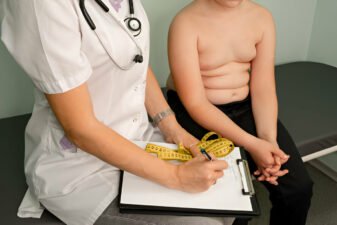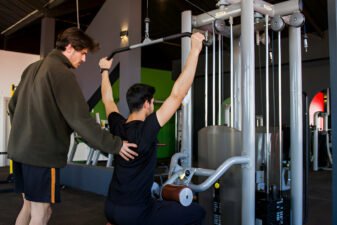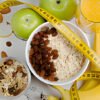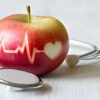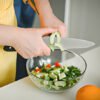Are You a Teenager Who Wants to Lose Weight?
If you are a teenager and you’re worried about your weight, you’ve come to the right place. Over the past 20 years or so, I’ve talked with tons of young people just like you, and helped a very high proportion of them to lose weight. I can’t change your weight for you – only you can do this – but I will help you to make the right decisions that will help you to achieve the weight you want. Just as important, I’ll tell you about the weight loss methods that DON’T WORK.
You Need to Trust Me
I’m not going to try and sell you something. All I’m going to do is give you the facts about how to lose weight successfully. Then it’s up to you. All I ask, is that you TRUST me. I may not know the latest rap lyrics, but I do know how to lose weight (and how NOT to). So trust me.
Number 1 Rule of Teenage Weight Loss
Eat Healthily!
Last year, a teenager came to me for weight loss advice. Let’s call her Suzie. She said she was “desperate” to lose weight for her school Prom. She wanted to lose about 20 pounds in 4 weeks. I said: “Sorry Suzie, the most you can hope for is 8 pounds, maximum.” So she went off and starved herself for 4 weeks. What happened? I learned later she lost about 7 pounds, and then developed a HUGE mass of spots. (ouch) Point is, when we stop eating, we stop giving our body the goodness it needs to stay healthy. So whatever you do, don’t ignore your health. (BTW, Suzie never made it to the Prom.)
Why Healthy Eating is Better Than “Dieting”
One of the reasons that adults experience weight problems and ill-health, is because they followed drastic or unhealthy weight loss diets during their teenage years. Dieting to reduce weight is not recommended until growth (including internal physical development) has ceased, usually around the age of 18. If you are younger than this, and very overweight, your doctor can help you by putting you in contact with a dietician who will create a healthy eating plan to allow growth to continue but prevent further weight gain. Ideally, discuss this with your parents.
How “Dieting” Causes Problems For Teens
Health research shows that even a short period of very strict “dieting” during your early teens can lead to low bone density, which causes weak bones in later life. Between 12-17 years of age, up to 90 percent of adult bone mass is laid down, so this is not a time to limit your intake of calcium, vitamin D or vitamin C, all of which are essential for proper bone growth.
“Dieting” may also lead to poor intakes of folic acid and iron. Both these nutrients help to prevent anemia, a condition which leads to constant tiredness as well as impaired intellectual performance. If you lead a busy life at school, with exams, sports and so on, you can’t afford to suffer from the ill-effects of anemia!
I won’t bore you with the dozens of other teen health problems that are caused by “dieting.” Just take my word for it – strict “dieting” won’t make your weight or health any better. Instead, focus on eating healthy food and taking daily exercise. Sounds boring? Maybe, but it will help to improve your weight and health. Trust me.
What Does Healthy Eating Really Mean?
There is no single “healthy diet”. As long as you eat a variety of foods, from the main food groups (fruits, vegetables, grains [rice, pasta, oats etc] lean meats, dairy, fats) you should get all the vitamins, minerals and other nutrition you need.
Does Healthy Eating Mean That Certain Foods are Off-Limits?
No. A healthy diet doesn’t mean depriving yourself of higher-calorie foods, like rich ice cream, toffee popcorn, cheeseburgers and stuff. You can enjoy these and other similar foods, but in moderation, or as occasional treats.
Two Healthy Eating Habits
Here are a couple of small suggestions to improve your daily diet and help maintain a healthy weight.
Snack on Fruits to Satisfy Your Sweet Tooth
Take a snack of fresh chopped fruit with you to school. Add some walnuts or Brazil nuts for extra crunch. More Sweet Snack Suggestions
Apply the Dinner-Plate Test to Your Meals
A good way to eat a healthy meal is to make sure that half the plate contains vegetables, with the remaining half divided equally between protein (meat, eggs, beans) and carbohydrates (rice, pasta, potatoes, noodles). If eating pizza, go easy on the cheese and pepperoni, go heavy on vegetables and fruit.
For more about healthy eating, click Diet For Optimum Health and Weight
